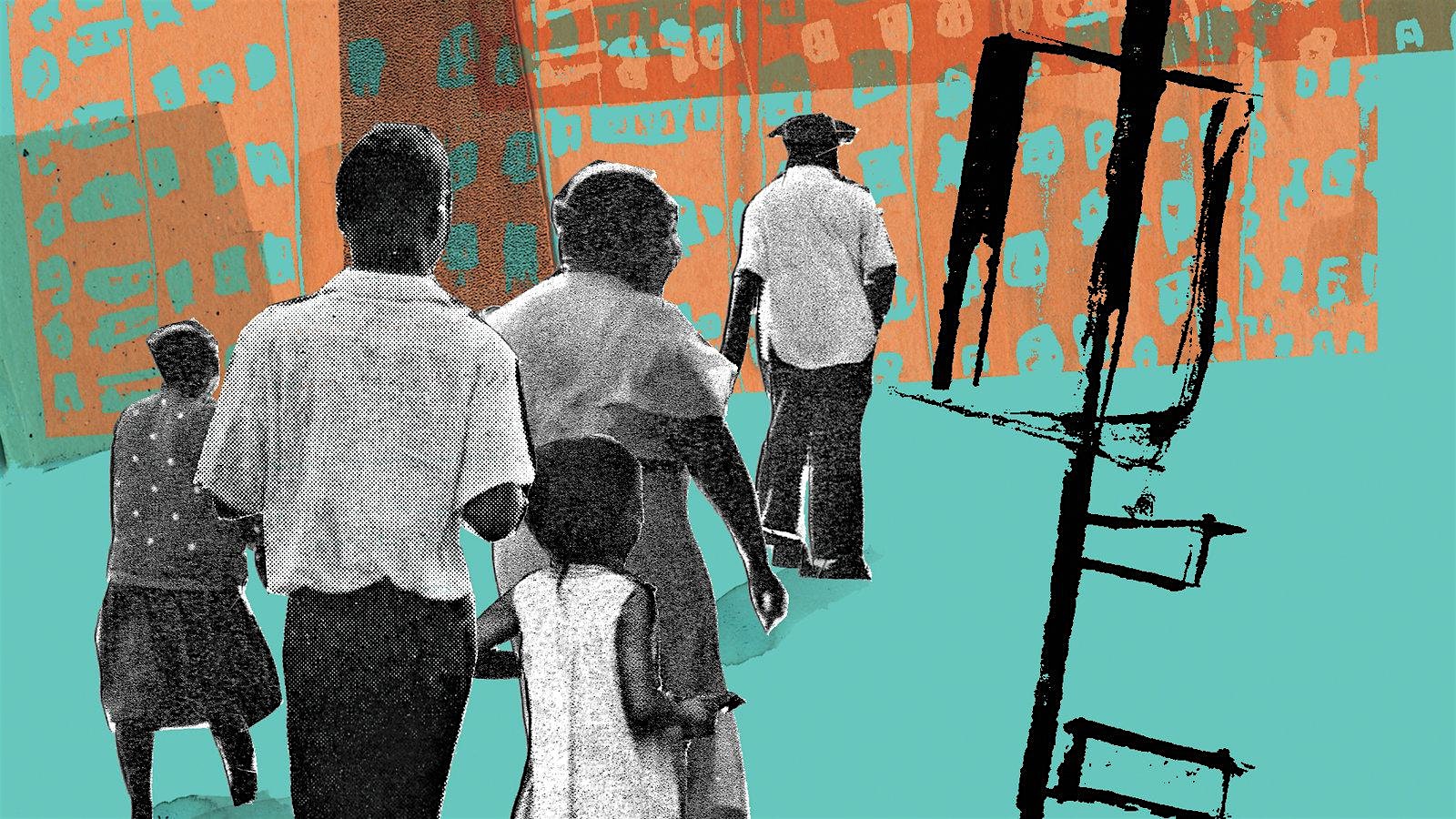Please be sure to check the event organizer’s website for any last-minute changes or cancellations prior to attending.
Have an event that will fit well on our calendar?

- This event has passed.
Constructing Representation: Approaches to Migration and Race

The Andrea Mitchell Center invites you to its second graduate student workshop of 2024-25, featuring Maryam Nahhal of Johns Hopkins University and Ezekiel Vergara from the University of Pennsylvania.
This is a hybrid event — the Zoom links will be sent to all participants.
Papers will also be sent to all registered guests.
Maryam Nahhal is a fourth year PhD candidate in Political Science at Johns Hopkins University. She completed my BA in International Relations at Queen Mary, University of London, and my MLitt in International Security Studies at the University of St. Andrews. Her research interests include the political development of racial classifications and racialised precarity. Her current work focuses on the U.S. census and the racial classification of Arab Americans.
Ezekiel Vergara is a third-year Ph.D. student in the University of Pennsylvania’s Department of Philosophy. He completed his undergraduate degree at Dartmouth College, where he studied Philosophy and Government. Prior to starting his Ph.D., Vergara worked at the Yale Program on Financial Stability, where he studied governments’ responses to financial crises. Vergara’s research interests primarily lie in political philosophy, ethics, and metaethics. In political philosophy, he is interested in global justice, liberal political thought, and debates about ideal/non-ideal theory. In ethics, he is interested in the ethics of self-defense, the ethics of economic foreign policy, and our duties to future people. He also likes to think about relational accounts of morality and consequentialism. In metaethics, he is interested in non-naturalism and moral disagreement.
Does Political Equality Demand That You Move?
By Ezekiel Vergara
Some representative schemes are population-sensitive. How much representation a group gets depends on the size of the represented population. Other representative schemes are population-insensitive. In these schemes, how much representation a group gets does not turn on the size of the represented population.In this paper, I am interested in population-insensitive schemes. I maintain that population-insensitive schemes lead to an unjustifiable inequality in political influence. Those who live in less populous areas are afforded more political influence than those in more populous areas. Like other causes of unequal political influence, I think that we have an obligation to mitigate it.
While there are different ways to mitigate this inequality, I focus on Rearrangement. Such a policy encourages the redistribution of population, such that each representative subunit has roughly the same population. To argue for Rearrangement, I proceed as follows. In Section I, I clarify my focus on political influence. In Section II, I discuss cases in which we think that we ought to intervene to address unequal political influence. In Section III, I suggest that we have the same reasons to address the unequal political influence that results from population-insensitive schemes. In Section IV, I provide a sketch of what Rearrangement would require. Such a policy encourages the redistribution of population, such that each representative subunit has roughly the same population. I maintain that such a program is not only practically plausible, but also that it holds philosophical merits. In Sections V and VI, I argue that it is not too demanding, and it respects the value that liberals accord to culture. It also promotes the independent value of diversity.
Homeland (In)Security and the racialisation of the Arab in America
By Maryam Nahhal
The study of racial formation in the United States has generally ignored the role of Islam and Islamophobia in the construction of racial categories. This became exponentially more apparent after 9/11 with the substantial increase in surveillance, unlawful detentions, hate crimes, and media rhetoric targeting Muslims and those perceived to be so, as well as military interventions in sovereign countries in the Middle East. This paper seeks to understand the racialisation of a category of people that had hitherto been mostly absent from racial politics literature. I argue that predominantly Christian Arab immigrants enjoyed a relatively benign position within the US racial system in the first half of the twentieth century. While this position was not uncontested, both by the courts and by the nativist backlash of the early 20th century, the Christian Arab was granted legal status as white on the basis of a shared Christian heritage. It was not until the 1960s that the Arab, while still officially white in legal instruments such as the Census, lost the invisibility and protections that such whiteness had granted them. This shift is linked to the increased immigration of Muslim Arabs following the 1965 Immigration Act, as well as the US’s increased interests and involvement in the Middle East during the Cold War, which shaped its relationship with its own Arab population. I will show how the coincidence of a series of international conjunctures, from the establishment of the state of Israel, Johnson’s 1965’s Immigration Act, the 1967 Arab-Israeli War, the Iranian Revolution, the 1970 oil embargo and other international crises drastically changed American perceptions about Arabs, highlighting the impact of American foreign policy on Arab diasporas in the U.S. While significant, 9/11 intensified and systematised existing patterns but it by no means instigated them.
Details
- Date: October 16, 2024
-
Time:
12:00 pm - 1:30 pm
- Website: https://www.eventbrite.com/e/constructing-representation-approaches-to-migration-and-race-tickets-1031435580587
Venue
- Perelman Center for Political Science and Economics
-
133 South 36th Street, Suite 010
Philadelphia, PA 19104 United States

